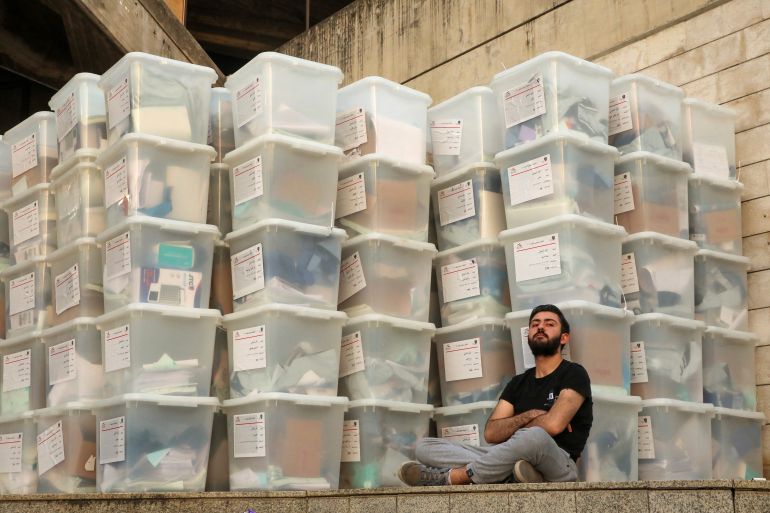Lebanon election monitors complain of violations, attacks
Sunday’s parliamentary elections were “marred by intimidation” and violence, according to local and foreign observers.

Beirut, Lebanon – The victory of more than a dozen anti-establishment candidates in Sunday’s parliamentary elections allowed many Lebanese to hope that the news would mark the beginning of a new effort to combat endemic corruption and bring about lasting change into the cash-strapped country.
But, while Prime Minister Najib Mikati called the elections a “victory” for Lebanon after final results were announced on Tuesday, election observers said that thousands of cases of corruption, violence, and vote-rigging at polling stations had been recorded, a reminder that the country’s entrenched political system still has enforcers who do not wish to see change.
Keep reading
list of 3 itemsHezbollah allies projected to suffer losses in Lebanon elections
Lebanon’s elections will only re-legitimise the failed system
The European Union Election Observation Mission said on Tuesday that an otherwise “vibrant” elections campaign was “marred by various instances of intimidation, including in front of and in polling stations and on social media, and instances of campaign obstruction”.
“Elections were overshadowed by widespread practices of vote buying and clientelism, which distorted the level playing field and seriously affected the voters’ choice,” György Hölvényi, the EU mission’s chief observer, said in a press statement.
Lebanese observers from the Lebanese Association for Democratic Elections (LADE) slammed the authorities and political partisans for some 3,600 “flagrant violations” that they recorded on election day.
Representatives of political parties stood next to supporters as the latter cast their ballot, while some videos showed partisans of the Iran-backed Shia party Hezbollah helping staff count the votes.
Ballot boxes that arrived from embassies and consulates abroad as part of the diaspora vote were at times broken and appeared tampered, while many polling stations did not even have electricity.
But beyond the logistical issues, there was also violence.
“They threatened our observers, did not allow them to take pictures of violations, and confiscated their mobile phones,” LADE Executive Director Aly Sleem told Al Jazeera.
Sleem said that party partisans had even attacked the observers and forced them to leave polling stations.
Journalists were not spared. Hussein Bassal, a photographer with the Lebanese digital media platform Megaphone, said Hezbollah partisans beat him after taking pictures at a polling station in southern Lebanon.
“Everything was normal that day, but they got upset when they found out that one of my videos that documented violations was widely shared online,” Bassal told Al Jazeera.
Bassal said that as he was leaving a polling station, a man who identified himself as a member of Hezbollah came up to him, took a picture, and snatched his press permit.
Bassal recalled that he attempted to hide in the office of an opposition group in the area, but was later beaten by several men, before eventually leaving thanks to help from Lebanese soldiers.
The attack has left Bassal with bruises all over his body and an inflamed rib.
Hezbollah did not respond to a request for comment on the attack on Bassal or the other allegations directed against them. However, Hezbollah has previously said that videos appearing to show Hezbollah supporters fighting with members of the Christian Lebanese Forces were inaccurate.
Sunday’s parliamentary elections are Lebanon’s first since widespread protests against the country’s traditional parties and elites rocked the country in October 2019.
The economy has since collapsed, pushing more than three-quarters of the population into poverty and to suffer some of the world’s highest inflation rates.
Many Lebanese point fingers at the country’s traditional sectarian leadership for financial mismanagement, corruption, nefarious profiteering, and violence.